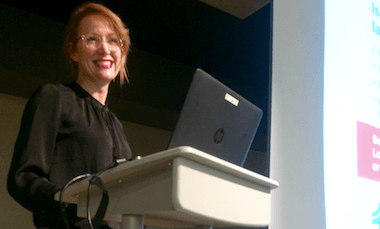Sinus Infection? Steps You Can Take
- Category: General, Primary Care
- Posted On:
- Written By: Boulder Community Health

Roughly 1 in 8 adults will suffer a sinus infection this year. The facial pressure, stopped-up nose, loss of smell and pounding headaches can make life miserable.
“Your sinuses are hollow cavities hidden within the bones of the face, around the nose. Normally, the lining of the sinuses produces mucus that drains into the nose. But when that lining becomes inflamed, sinus outflow gets blocked and the mucus stagnates, creating a breeding ground for bacteria and infection,” Drs. Mark Hunter and Angela Paddack — specialists in Ear, Nose and Throat conditions – explained to a crowd of nearly 160 people during a free health lecture held on Feb. 16 at the Boulder Jewish Community Center.
Sinus infections can range in severity – from acute sinus infections that last less than one month to chronic infections that drag on for months or years.
Treatments for short-term sinus infection

Typically, acute infections are caused by viruses and improve on their own. Dr. Paddack said that Tylenol and ibuprofen work well for both pain relief and swelling. Other over-the-counter remedies for short-term infections include:
- Decongestants such as Sudafed
- Nasal steroid sprays, including Flonase, Nasacort, Rhinocort and Nasonex
- Nasal saline rinses (neti pots)
Dr. Paddack warned that over-the-counter nasal sprays containing oxymetazoline, such as Afrin, can initially help relieve congestion, but they shouldn’t be used for more than three days.
“With extended use of oxymetazoline spray, you develop the risk of rebound congestion and dependence, which is a vicious cycle of overuse,” she said. "The spray works well, but when you stop it, you get congested. So you end up needing more frequent applications to get relief."
If over-the-counter options aren't working and symptoms last more than 10 days, bacteria might be the culprit. Talk with your health care provider to determine whether you need an antibiotic to stomp out the infection.
Treating chronic infection

Symptoms that last longer than 12 weeks could indicate a chronic sinus infection.
According to Dr. Hunter, chronic sinus problems can stem from infection, allergy, genetic predisposition, autoimmune disorders or structural abnormalities such as a deviated septum and nasal polyps. Treatment varies, depending upon the cause.
He said, “Medical therapy for chronic sinus infection includes saline rinses, nasal steroid sprays, antibiotics and oral steroids. If these medical therapies fail or there are complications, surgery may help."
Sinus surgery
“The point of sinus surgery is to widen sinus openings and clear away any infection,” Dr. Hunter explained. “Sometimes the surgery doesn’t cure the underlying issue, such as allergies, but it can make the sinuses more receptive to medications.”
The latest surgical options for chronic sinus infection include endoscopic sinus surgery and balloon sinuplasty.
Dr. Hunter said, “Endoscopic sinus surgery is the current gold standard. Over the years, endoscopic technology and techniques have become increasing more accurate and less invasive. We can go in, remove diseased tissue and open up sinuses, typically with mild pain and short recovery times."
Balloon sinuplasty is a fairly new technology that’s a less invasive option.
"It’s a gentle, in-office procedure that we sometimes consider,” he said. “The downside of balloon sinuplasty is that it’s appropriate for only a very small set of patients. For example, if you have too many polyps, this may not be for you.”
Image-guided surgery
The sinuses are located near important structures, including the eyes, brain and carotid artery. To avoid injuries to these structures, surgeons must know exactly where they're placing surgical instruments, which is the reason Drs. Hunter and Paddack use image-guided surgery (IGS).
“IGS significantly enhances the safety and effectiveness of a surgery,” Dr. Paddack said. “In some ways it's similar to GPS. It helps us navigate within the sinuses by delivering real-time images and constantly calculating where instruments are located in relation to the patient’s sinus anatomy."
If you suffer from symptoms of sinus infection, schedule an appointment with either Mark Hunter, MD, or Angela Paddack, MD, by calling (303) 440-3073.
Want to receive notification of special events and lectures? Sign up to receive email notifications.